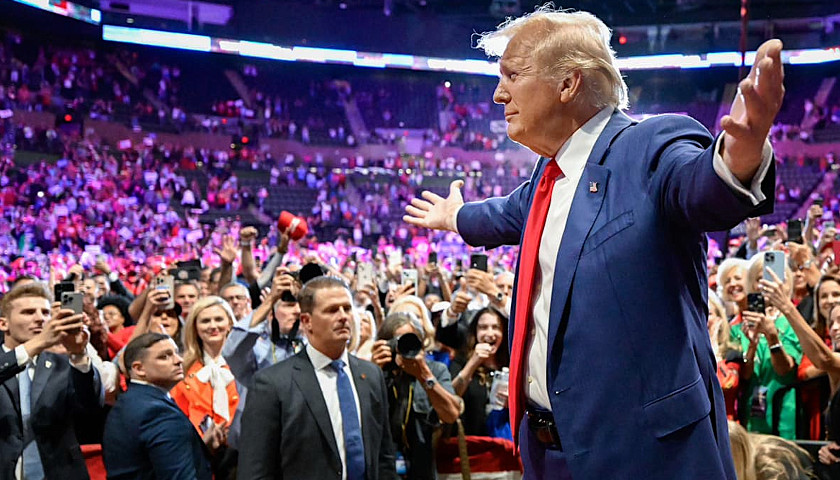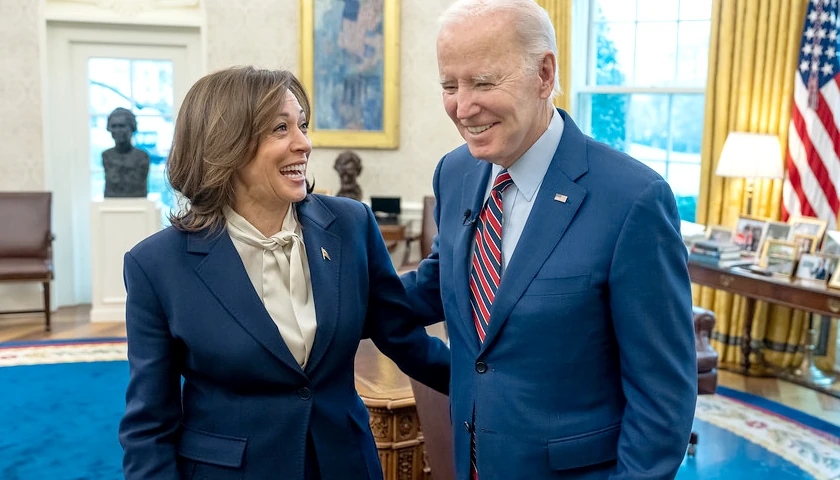Subsidiaries of behemoth concert promoter Live Nation Entertainment received $20 million in federal COVID grants that they were not entitled to, according to The Wisconsin Daily Star’s review of documents.
Madison-based Frank Productions Concerts, LLC and National Shows 2, LLC of Delaware, each received $10 million from the Small Business Administration’s Shuttered Venues Operator Grant (SVOG) program — funding that was clearly marked for independent operators, not subsidiaries of publicly traded companies.
Congressional sources tell The Daily Star there is interest in clawing back billions of dollars in COVID program funds that were improperly disbursed.
A Wisconsin lawmaker said Frank Productions again appears to be benefitting from taxpayers at the expense of independent entertainment operators.
“Those were monies that were given out for oraganziations to get through the pandemic issues and stay afloat,” State Representative John Macco (R-Ledgeview) said.
Big Business Reaps Big Taxpayer Benefits
The $16.25 billion SVOG program — otherwise known as the Save Our Stages Act — was created under the broader Economic Aid to Hard-Hit Small Businesses, Nonprofits and Venues Act, which fell under the Consolidated Appropriations Act, of 2021. Emphasis on small businesses and nonprofits.
It ultimately was amended in the American Rescue Plan Act of 2021 to provide grants equal to 45 percent of an eligible venue’s gross earned revenue, with the maximum amount available for a single grant award set at $10 million. Eligible applicants with up to 50 full-time employees were able to draw from a reserve pot of $2 billion.
Frank Productions Concerts, LLC, and National Shows 2 each received maximum awards, according to federal documents. But the grant program’s guidelines make clear that a subsidiary of a publicly traded company does not qualify for an SVOG.
“Must not issue securities on a national securities exchange or is Applicant wholly or partly owned or operated by an entity that issues securities on a national securities exchange,” the Small Business Administration states on general eligibility requirements for the grant program.
Live Nation Entertainment (LYV) is very much a publicly traded company, with its stock trading at $70.54 per share — up nearly 1 percent — at the close of the business day Thursday.
A perusal of the financial records shows a big difference between mammoth Live Nation and smaller, independent recipients of the small business grants. In its annual financials for 2022, Live Nation reported $16.7 billion in revenue, up 44 percent from the previous year (when its subsidiaries received millions of dollars in SBA-administered grants). The company’s operating income was up 125 percent, to $732 million, and adjusted operating income on the year was $1.4 billion, up nearly 50 percent.
Compare Live Nation’s numbers to, say, Madison’s TNW Ensemble Theater, a nonprofit theater group that reported $56,281 in total revenue with net income of less than $14,000 in 2019, the most recent year for which tax records are public. The theater received $14,996 through the SVOG program, according to records.
Joel Plant, CEO of Madison-based concert promotion company Frank Productions, did not return The Daily Star’s request for comment.
Last year, sources told The Washington Post that Live Nation urged federal lawmakers to allow it to be eligible for the COVID relief program. Documents obtained by The Daily Star show the mega entertainment company owns a substantial ownership stake in the entities that received the federal funds.
The Post story lists several other companies under Live Nation subsidiary tent that received SVOG money including, Gellman Management LLC, which received nearly $407,000; and Missouri firm Delmar Hall LLC, which received $1.75 million.
In its 2021 annual report, Live Nation used its Beverly Hills, California, office address as the primary office for both Frank Productions Concerts, LLC and National Shows 2, LLC. On the SVOG award, however, Frank Productions Concerts’ Madison address is noted.
The Post story contends the grants do not appear to have violated the law or the SBA rules, but the grant program eligibility language certainly suggests the subsidiaries were not eligible for the funds.
Senator Amy Klobuchar (D-MN.), an author of the SVOG bill, told Pollstar that lawmakers did not think Live Nation should qualify for the cash.
“It’s true it [the legislation] doesn’t include Live Nation venues, because they have such a vast empire with [Ticketmaster, which Live Nation wholly owns] and things,” she said.
Sweetheart Deal
It’s just more taxpayer money used for an entertainment company titan at the expense of small, independent operators, Macco said. The state representative, who chairs the Assembly Ways and Means Committee, sent a letter last fall warning the Milwaukee Common Council not to approve Frank Productions Concerts (FPC) Live’s plan to build competing concert venues in the city’s famed Deer District.
The council did not heed the lawmakers’ warning.
“I have serious concerns that the revenue impact on the city with the proposed concert venue will be zero and potentially a loss,” Macco wrote.
As Empower Wisconsin reported at the time, it’s all part of a sweetheart deal for Madison-based FPC, part of the Live Nation Entertainment/Ticketmaster-backed Frank Productions corporate family, the largest live entertainment and venue operator in the country.
Under the plan, FPC Live entered into a long-term land lease of former BMO Harris Bradley Center property now owned by the Milwaukee Bucks.
The Bucks got the 5.9 acre parcel after the state of Wisconsin — thanks to its taxpayers — paid off the remaining $10 million debt on the old BMO Harris Bradley Center and transferred the deed to the Wisconsin Center District (WCD), the government body that built and operates downtown’s convention and exhibition center, the UW-Milwaukee Panther Arena, and Miller High Life Theatre. WCD then transferred the land to the Milwaukee Bucks for free.
The land was part of the 2015 deal that includes $250 million in state taxpayer money for the Fiserv Forum, the half-billion dollar, multi-purpose arena that is home to the NBA team.
Bucks President Peter Feigin and Mayor Cavalier Johnson insist the gilded new venues will benefit Milwaukee’s concert/entertainment scene. Adjacent concert promoters and owners, including Pabst Theater, Riverside Theater, Turner Hall Ballroom, Miller High Life Theatre, The Rave, and others say the FPC venues will canabalize business.
Macco agrees.
“This development will bring no additional revenue to the City or the State, harm established local music venues and potentially put them out of business,” Macco warned in the letter.
He noted the land, subsidized by Wisconsin taxpayers, was provided with the understanding that there would be a hotel and retail complex built on the property. Such uses would “enhance, rather than detract from City revenues.”
On Thursday, Macco told The Daily Star that he’s frustrated that more taxpayer money is going to giant concert promoters. It’s unclear what the Live Nation subsidiaries used the millions of dollars in grant funds for.
Delays and Rising Costs
Meanwhile, it appears FPC Live’s project has been delayed. Plant told news outlets last November that groundbreaking was expected in December. Last week, the Milwaukee Journal Sentinel reported the ground has yet to be broken. Now, Plant says groundbreaking will take place sometime before fall.
Plant told the newspaper that construction would cost $50 million, but that figure is now “up dramatically,” with a final price tag yet to be determined.
The lease agreement with the Milwaukee Bucks is “at the finish line,” he told the newspaper.
But the Milwaukee Business Journal recently reported construction work has been delayed by pending city permit approvals and incomplete financing.
“To put it bluntly, the project is going to require more cash due to interest rates and inflation,” Plant told the publication.
– – –
M.D. Kittle is the National Political Editor for The Star News Network.





